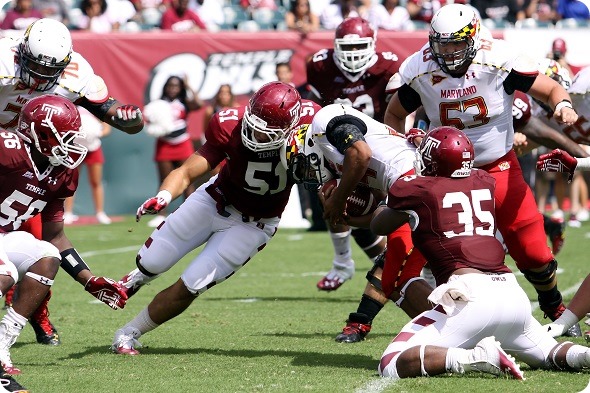The DETECT study, published yesterday, showed that former National Football League (NFL) players who participated in tackle football before the age of 12 years were more likely to have memory and thinking problems in adulthood.

Richard Paul Kane / Shutterstock.com
Researchers assessed 42 former NFL players, with an average age of 52 years, using a battery of neuropsychological tests. The participants, who had all experienced memory and thinking problems for at least six months, were split into two groups according to whether they had first played tackle football before or after the age of 12 years. The number of concussions sustained was similar between the two groups.
Subjects who were playing football aged <12 years performed significantly worse on all test measures, than those who started football aged ≥12 years. For example, they recalled fewer words from a list they had learned 15 minutes earlier, and made more repetitive errors on a test of mental flexibility. Although both groups scored below average on many of the tests, there was a 20% difference in the level of current functioning between the two groups. These results held true even after the total number of years of football played and the age of the players at the time of the tests were taken into account.
Robert Stern of Boston University School of Medicine commented:
Our study suggests that there may be a critical window of brain development during which repeated head impacts can lead to thinking and memory difficulties later in life.
Christopher M. Filley of the University of Colorado School of Medicine highlighted that the researchers were "unable to assess the total number of head impacts, so it's possible that the number of impacts is responsible for the reported results rather than the early age of exposure to football”.
Since 70% of all football players in the United States are under the age of 14, and can be exposed to 240 head impacts during a single football season, a better understanding of how these impacts may affect brain performance is urgently needed. However, further research is needed to confirm whether these results are applicable to the general public.
If larger studies also show that repeated head impact in childhood increases the risk of cognitive impairment in later life, there may be the need for revised youth sport safety recommendations.
Further reading
American Academy of Neurology guidelines on concussion. Available at www.aan.com/concussion.